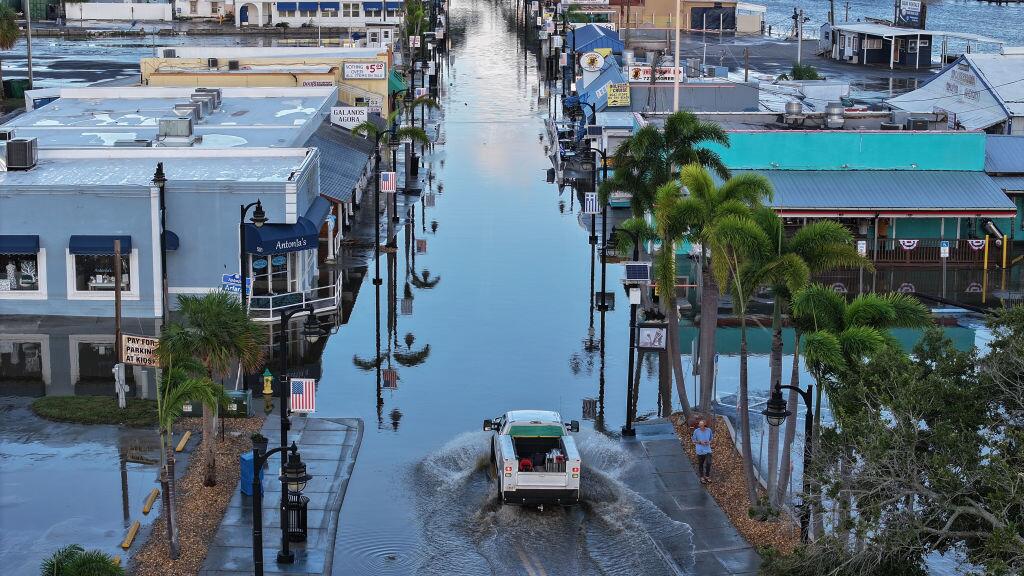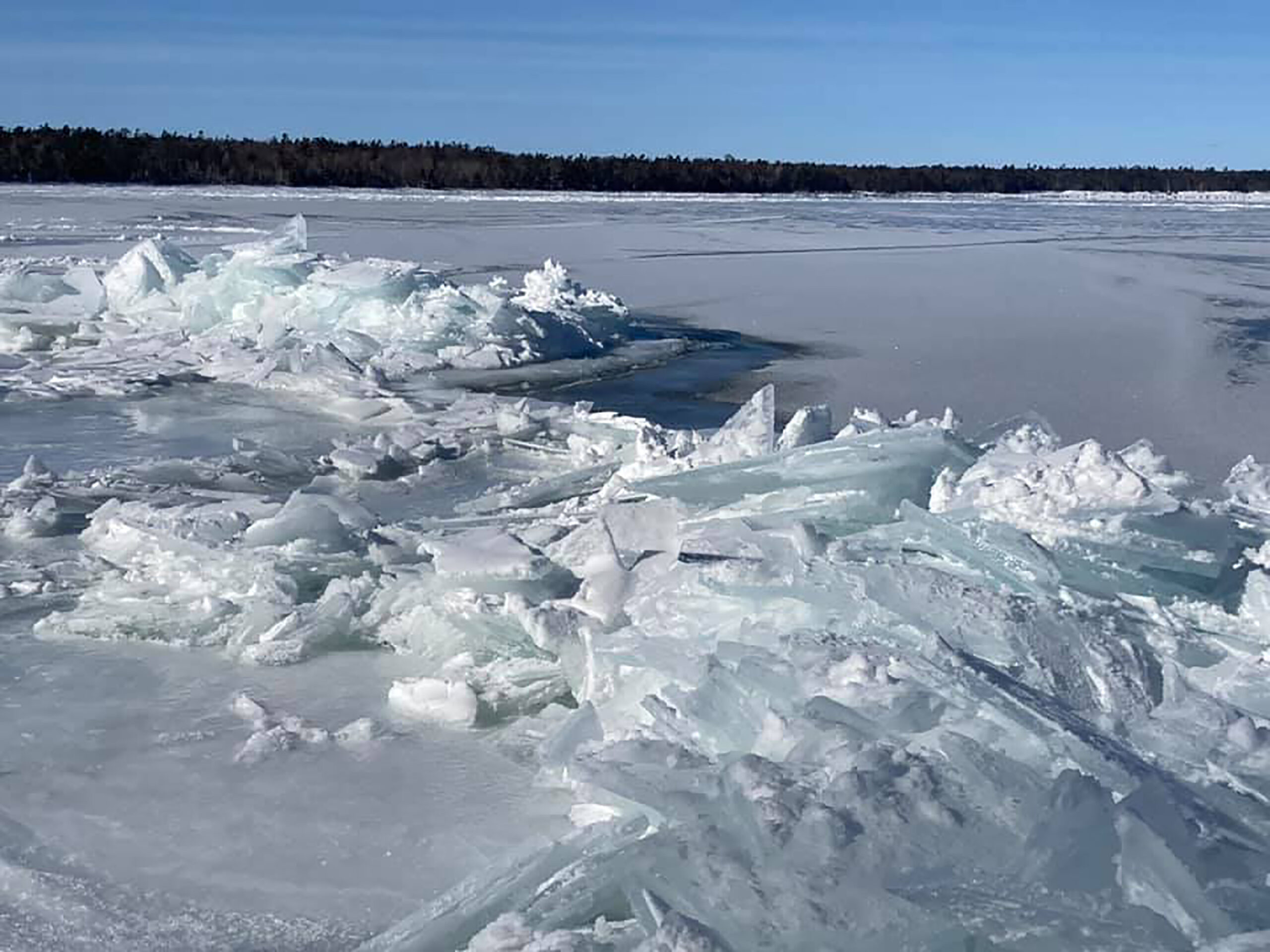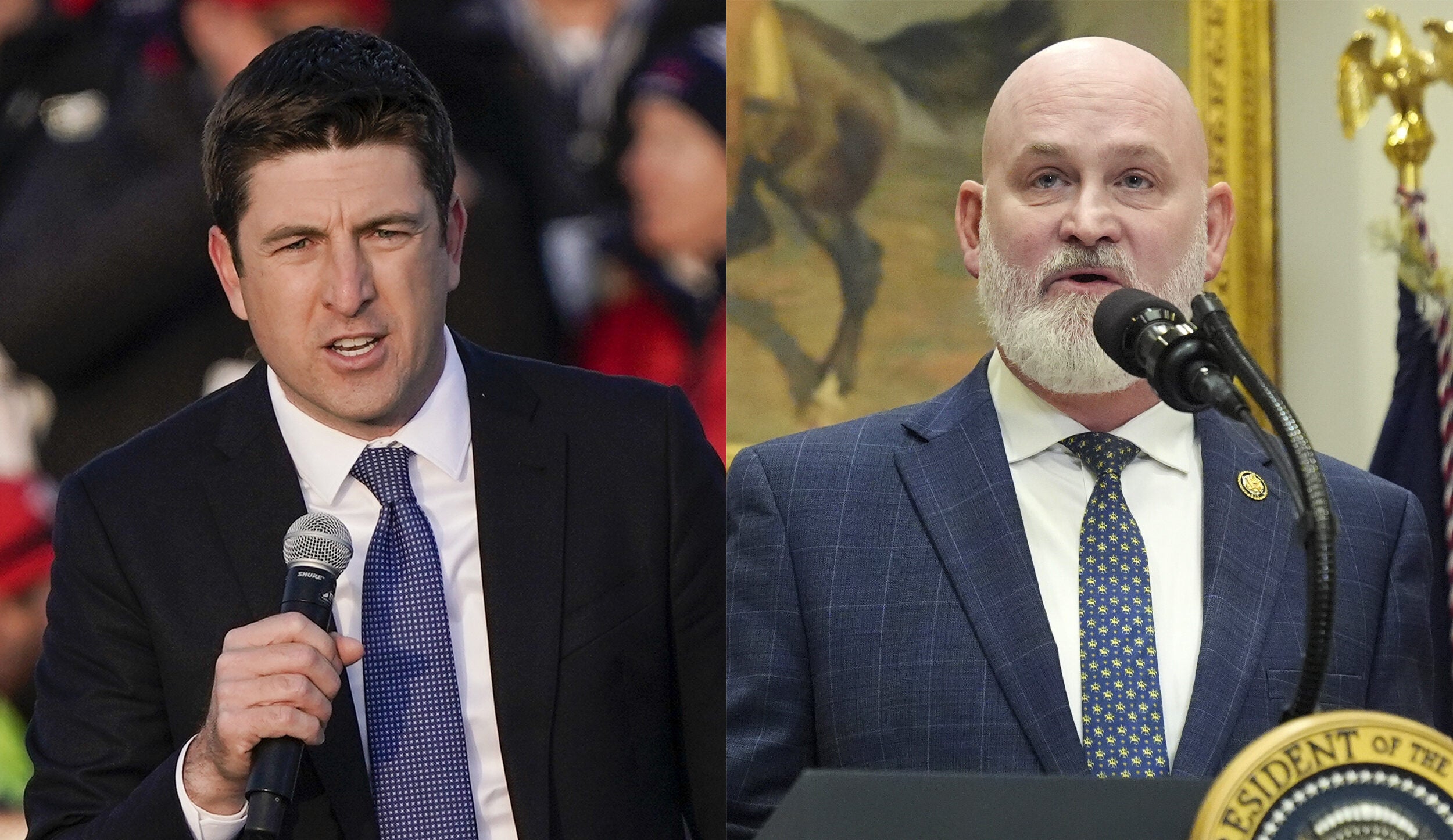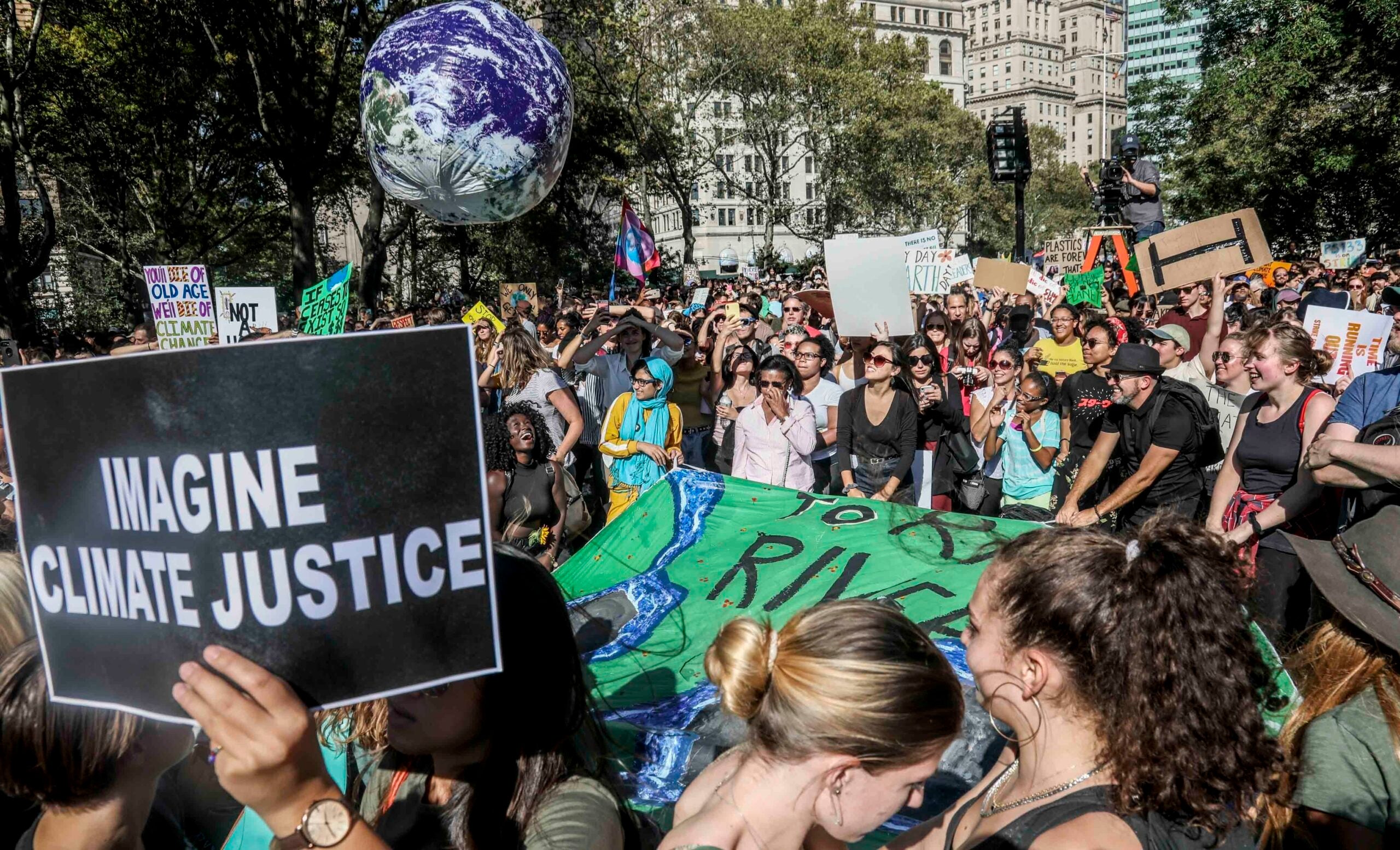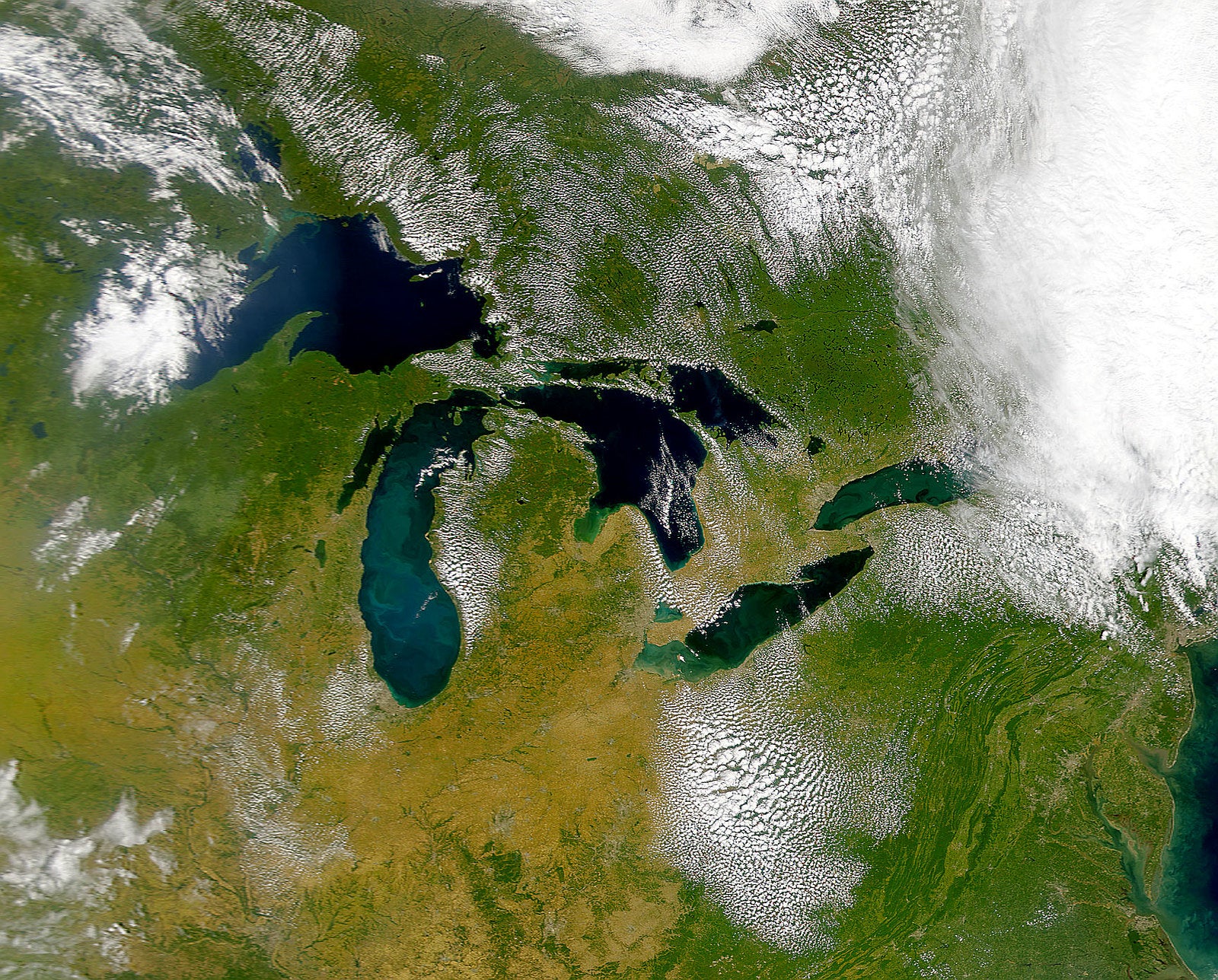Outside a September rally with Minnesota Gov. Tim Walz at the University of Wisconsin-Superior, Ashland business owner and Democrat Will Pipkin set up signs with a cavalcade of slogans, including “Another cat lady for democracy” and “Without a healthy climate, there’s no freedom.”
Pipkin said he’s backing Vice President Kamala Harris and Walz in the presidential race because they’re the most progressive choice, and he thinks they would continue President Joe Biden’s work on green initiatives and climate change.
“Those are the things that are really important to me personally,” Pipkin said.
News with a little more humanity
WPR’s “Wisconsin Today” newsletter keeps you connected to the state you love without feeling overwhelmed. No paywall. No agenda. No corporate filter.
As a part of WPR’s America Amplified project, we asked what issues Wisconsinites want the candidates to be discussing as they compete for votes in the crucial swing state. More than a dozen people listed climate change as their top concern as they head to the polls.
But Pipkin said he feels like not much was said about the climate during the September presidential debate, between Harris and former Republican President Donald Trump.
“It was glossed over. I’m glad that she pointed toward things that happened as a part of Build Back Better and the other infrastructure projects. So that’s good, but it’s not nearly enough as to where we need to go,” Pipkin said. “And if we had Trump, it would just be, it’s like a doomsday bomb for the planet, is what I think.”
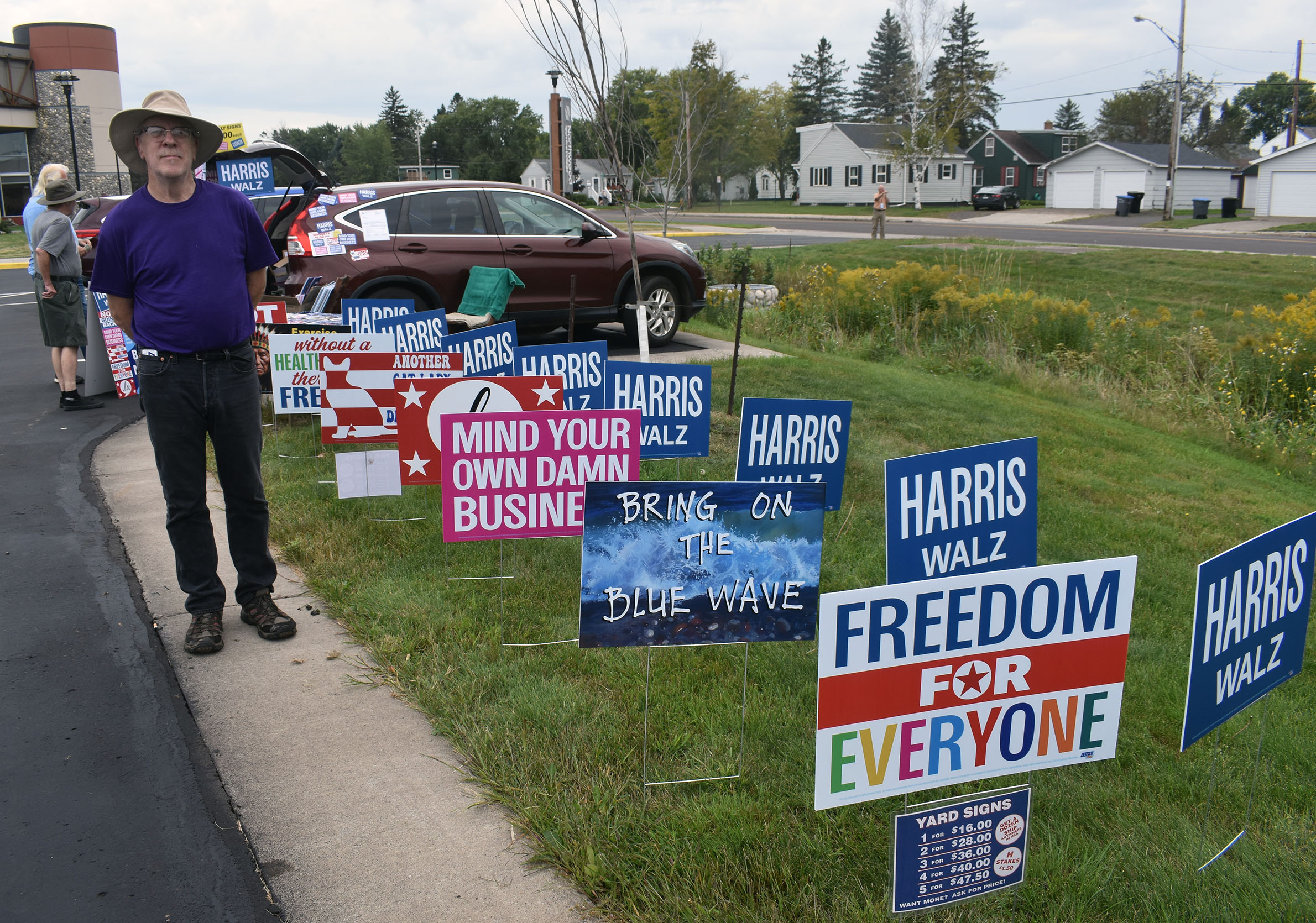
He’s not the only one who feels the issue isn’t getting much attention. Democrat Diann Parker of Trego reached out to WPR to say that she wishes the candidates would weigh in on “climate change and the resulting severe weather.” She pointed to the stress that weather emergencies have placed on funding for disaster relief under the Federal Emergency Management Agency.
“I think it’s not as much of a hot button issue as some of the other political questions are — the economy and others,” Parker said.
Polls show climate change ranks low among voter concerns
Political expert Mordecai Lee, professor emeritus at the University of Wisconsin-Milwaukee, said it’s interesting that climate change has practically been an invisible issue in this election.
“With two hurricanes hitting Florida in just two weeks, you would think it would be front of mind for everybody, but I guess it’s a peculiarity of American politics … that people are focusing on issues that seem top of mind,” Lee said.
Issues like the economy, abortion and immigration — not climate change, Lee said. He noted less than 1 percent of likely voters surveyed nationwide, as well as likely voters in Florida, said climate change was the most important issue deciding their vote in November in recent polling from the New York Times.

Past Wisconsin polling has shown that many voters share Pipkin and Parker’s concerns about climate change. Even so, Wisconsinites ranked it less of a problem compared to inflation, gun violence, health care, crime and the distribution of wealth in a 2023 survey by WisconSays and the La Follette School of Public Affairs at UW-Madison.
The survey found 50 percent of residents ranked it as quite a problem or an extremely big problem in Wisconsin. And, 61 percent said it was a big problem across the country.
Trump, Harris diverge on climate priorities
Part of the reason driving its low ranking in the polls and little attention from candidates this year is that Democrats are seen as the party that’s pro-environment, Lee said. During the presidential debate, Harris touted the administration’s record on efforts to combat global warming.
“I am proud that as vice president, over the last four years, we have invested $1 trillion in a clean energy economy. While we have also increased domestic gas production to historic levels, we have created over 800,000 new manufacturing jobs,” Harris said.
The trillion-dollar figure includes spending under the Bipartisan Infrastructure Law, CHIPS and Science Act and the $369 billion Inflation Reduction Act, which Harris cast the tiebreaking vote to pass in 2022.
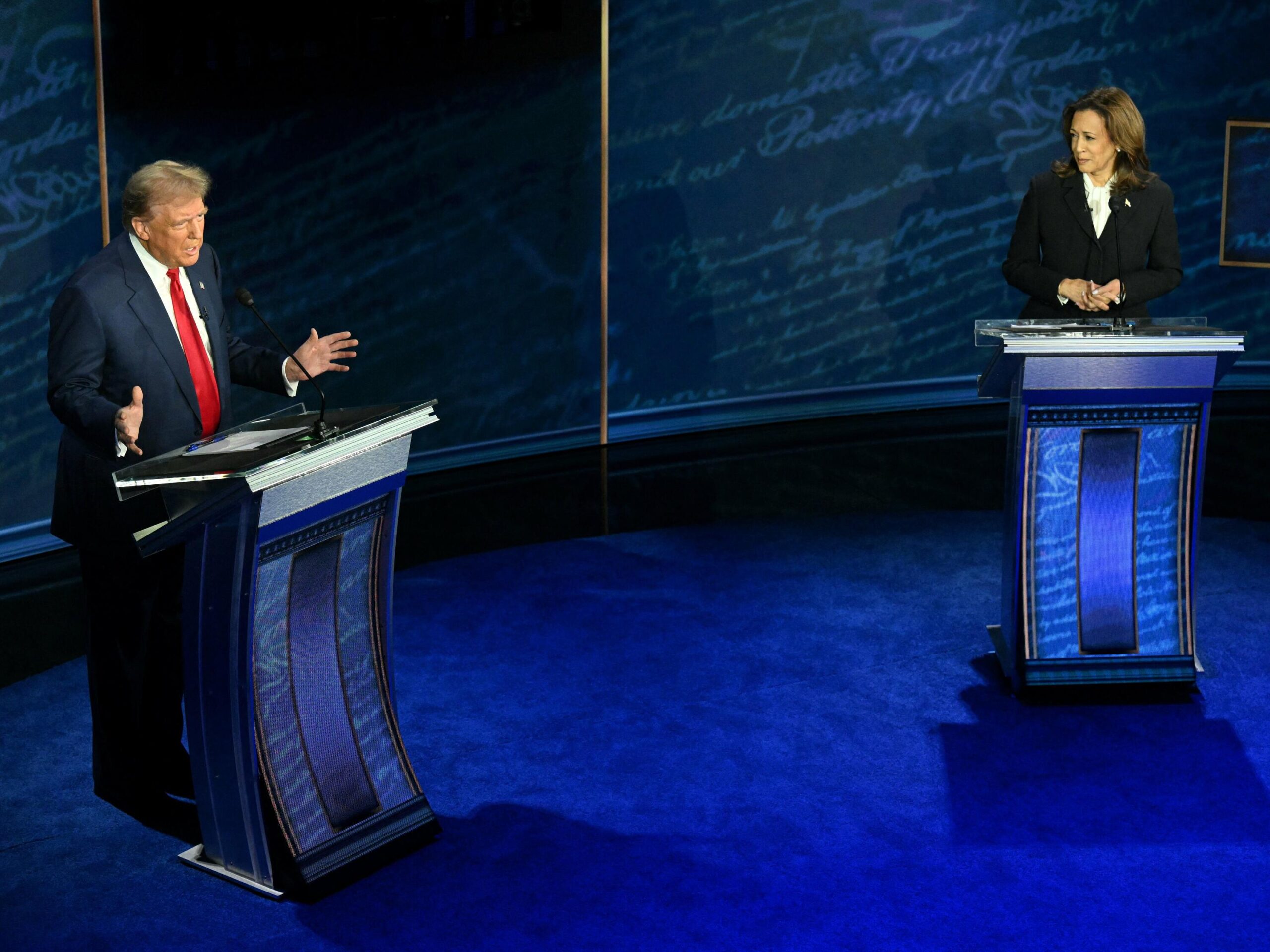
Trump said he would rescind all unspent funds from the Inflation Reduction Act, calling it the “Green New Scam.” He also pledged to boost oil production at the Republican National Convention in Milwaukee in July after telling oil industry executives to donate $1 billion to his campaign earlier this year.
“I will end the devastating inflation crisis immediately, bring down interest rates and lower the cost of energy. We will drill, baby, drill,” Trump said at the convention.
During his presidency, Trump withdrew the nation from the Paris climate agreement. The Biden-Harris administration later rejoined the pact aimed at reducing emissions worldwide to stave off the worst effects of climate change.
Trump has also attacked Harris over her past support for the Green New Deal, a congressional resolution that called for a transition to providing 100 percent of power demand from renewable sources. In 2019, Harris opposed fracking as a presidential primary candidate and pledged to ban it for environmental reasons. She has reversed that position as vice president. During the debate, Harris noted the Inflation Reduction Act opened new leases for fracking, and said she wouldn’t ban the process.
Like many issues, climate change divides Wisconsin voters
In Wisconsin, voters are split on climate change along party lines. A more recent survey conducted over the summer by WisconSays shows 75 percent of Democrats think it’s quite or an extremely big problem compared to just 18 percent of Republicans.
Sedona Chinn is an assistant professor of Life Sciences Communication at UW-Madison. She has studied how people make sense of conflicting claims on science and the environment, including politicization of climate change. Climate change is clearly not a priority for Trump, she said, and Harris may not be talking about it as she tries to court moderate voters and Republicans.
“There may be some hesitancy using an issue that’s typically considered a politically polarized issue and a wedge issue, and talking about that too much because there’s a risk it could alienate some of those moderate Republicans,” Chinn said.
Osseo resident John Skoug says he’s not surprised climate change isn’t getting much attention, but he’s not happy about it. He said he’s an independent who feels pushed to the left by Trump, who he called a demagogue and a dictator. Skoug noted the Inflation Reduction Act is benefitting red states and districts. One recent report notes Wisconsin added nearly 2,200 clean energy jobs in the first full year after its passage, and the state is set to see billions of dollars for large-scale renewable energy development.
Skoug said he’d hate to see the landmark climate law reversed.
“It’s kind of sad, but the contrast between the two candidates as it relates to environmental policy generally, and climate change in particular, couldn’t be more stark,” Skoug said. “That concerns me a lot.”
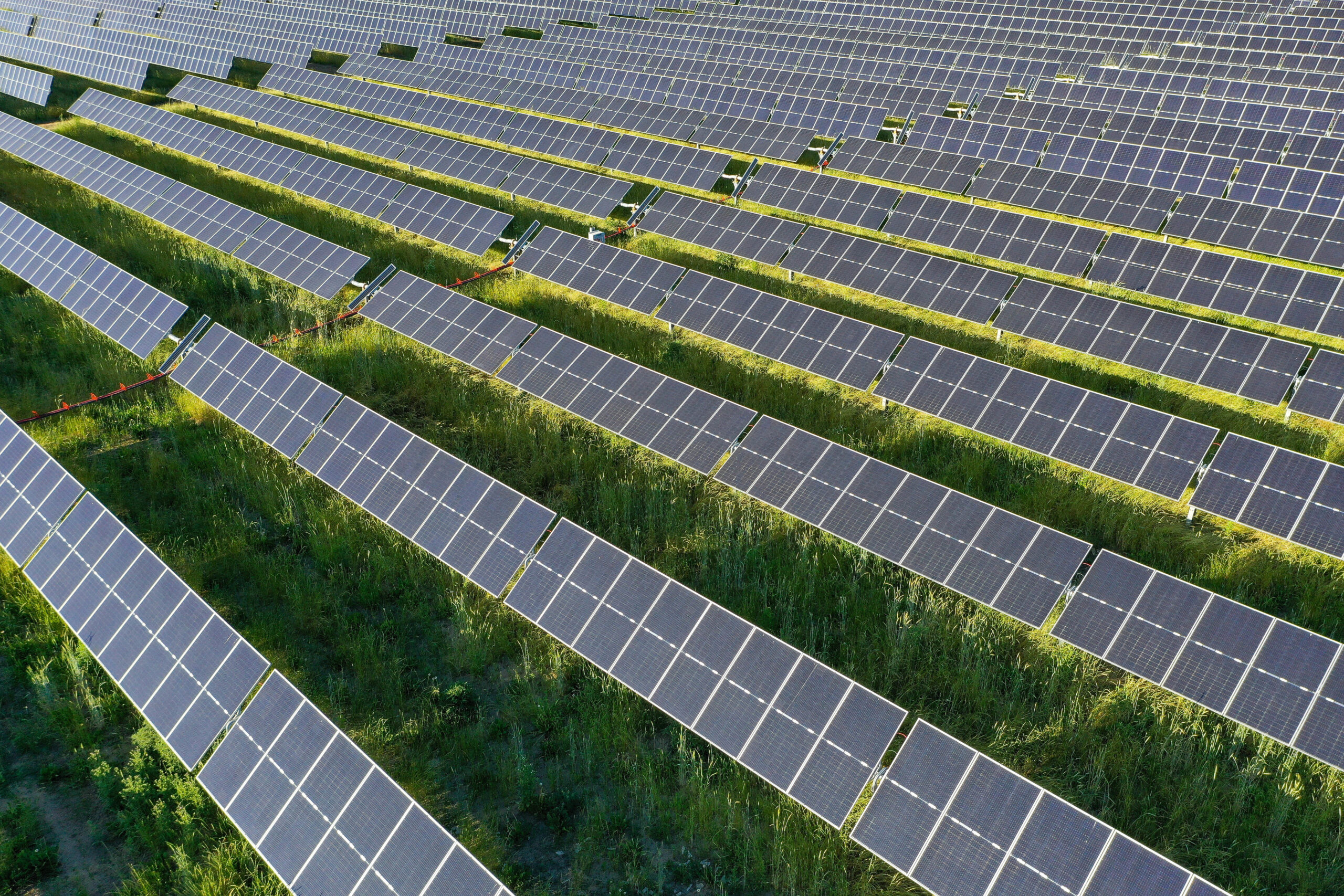
In Wisconsin, climate change effects are already being felt
Still, there are some conservatives who share concerns about climate change. Appleton native and Republican Benji Backer, who now lives in Arizona, founded the American Conservation Coalition to get conservatives back to the table on environmental issues.
As climate change makes Wisconsin warmer and wetter, he highlighted that’s upending winter activities like snowmobiling and creating challenges for farmers. He supports an all of the above energy policy that lowers emissions and provides reliable, affordable energy.
“It’s something that can be solved through principles that aren’t against Wisconsin values and that aren’t against American values,” Backer said. “You can lower carbon emissions and pollution in the atmosphere and also grow the economy and help people keep their jobs and boost your local community and even help rural communities.”
As November draws near, Backer said he’s undecided and feels politically homeless. He doesn’t subscribe to Harris’ beliefs on environmental issues, but he added that Trump’s stance on climate change is not good enough for him. In recent weeks, Hurricanes Helene and Milton have drawn some attention to the issue as researchers note the storms were made worse by climate change.
In 2021, a Marquette University Law School poll found 58 percent of registered voters in Wisconsin feel climate change would have major or minor impacts on future life in the state. Lee said the average Wisconsinite would likely agree that it’s having some personal impact, whether that’s in the form of drought conditions, intense rains or record-shattering high temperatures.
“But it’s not quite as front of mind as it would be to, let’s say, Floridians,” Lee said. “That would mean that climate change is sort of there in the background, more than sort of noise, but not highly politicized, to the point that it would have the political sex appeal of, in a sense, winning Wisconsin.”
Wisconsin Public Radio, © Copyright 2025, Board of Regents of the University of Wisconsin System and Wisconsin Educational Communications Board.

